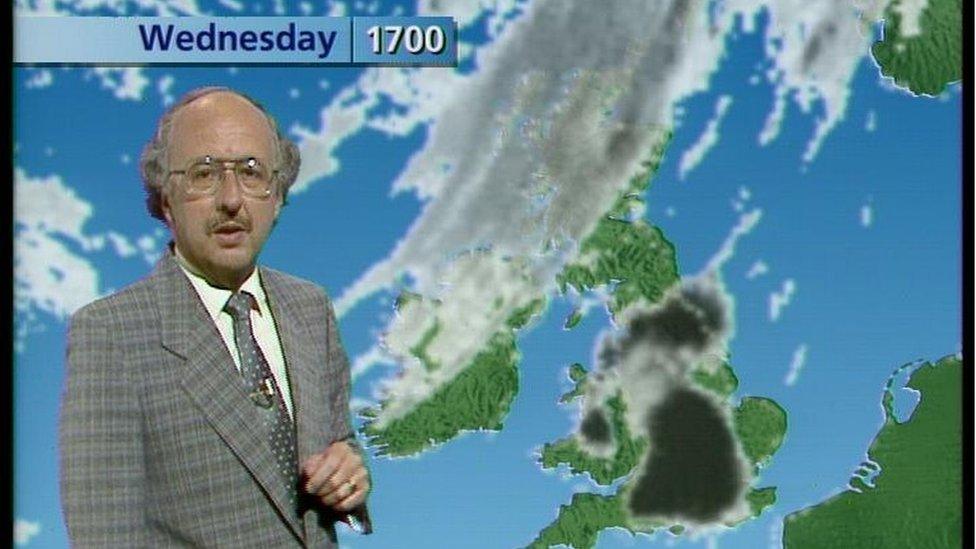The Bank's 'Michael Fish' moment
- Published
- comments

BBC weather presenter Michael Fish reading the signs available to him
"The only function of economic forecasting," JK Galbraith once said, "is to make astrology look respectable."
With disarming honesty, the Bank of England's chief economist, Andrew Haldane, has admitted that criticisms that economic forecasts had been wrong before the financial crisis and wrong about the immediate impact of a Brexit vote were a "fair cop".
The profession, he said, was facing a crisis of confidence.
Mr Haldane went on to describe the failure to understand the impact of the collapse of Lehman Brothers in 2008 as the profession's "Michael Fish moment" - when the weather forecaster suggested in 1987 there wasn't a hurricane on the way before record high winds devastated large parts of the south east of England.
Reason and error
To be clear, Mr Haldane was talking about economists as a whole - not just the Bank - and said he still fundamentally agreed with the Bank's central forecast - made last November - that 2017 and 2018 could see a "material" slowdown in economic activity and a significant rise in inflation.
The Bank was right to suggest that sterling would fall in value following a Brexit vote.
But, consumer confidence has held up far more robustly than expected and, yet again, it is clear that while economic models can make reasoned judgements about the future, those judgements can prove erroneous.
Particularly when they attempt to account for "shock" events - the financial crisis (when forecasts undercooked the effects) or the vote to leave the European Union (when models over-cooked the short term effects and failed to account for "dynamic" policy responses such as the Bank itself cutting interest rates to new record lows).
Tricky
Mr Haldane said that economists could learn from meteorologists, who now use much more data to understand how weather patterns develop.
Meteorology is, of course, a science.
Economics is a study, ultimately, of human behaviour - what millions, billions, of people may or may not do, given a certain set of circumstances.
Making judgements on that is always going to be a tricky, imprecise business.

Star gazing - more respectable than economics?